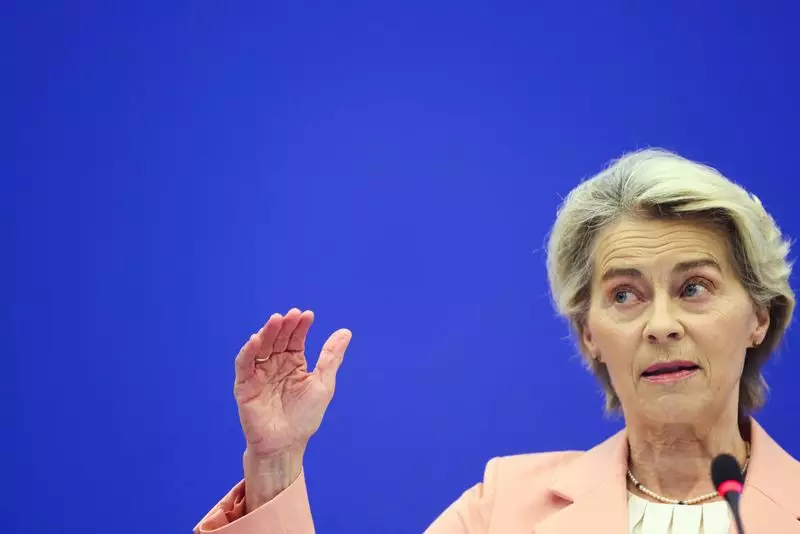As nation-states navigate the complexities of an increasingly interconnected world, the European Union (EU) is at a critical juncture where strategic fiscal decisions could determine its competitive edge against powerhouses like China and the United States. The recent proposal from the European Commission to establish a Competitiveness Fund is a pivotal step in ensuring that the EU not only keeps pace with technological advancements but also strengthens its economic resilience in the face of global challenges. The proposed fund signals a shift in the EU’s policy-making approach, emphasizing the urgent need for substantial investment in critical sectors.
Strategic Investments in Technology
The heart of the proposal lies in a compelling recognition: the EU must foster innovation and technological development to remain relevant. The drive toward creating the Competitiveness Fund stems from a multifaceted agenda that seeks to enhance the bloc’s capability to compete on the global stage. As highlighted by Commission President Ursula von der Leyen, the need for massive investment is not merely a response to external threats but an essential strategy to prevent economic stagnation. The importance of technology as a cornerstone for future growth cannot be overstated; the EU must actively align its budgetary expenditures to reflect this prioritization.
However, the proposed financial framework confronts significant challenges, particularly regarding the traditional budget structures that have long characterized the EU’s fiscal approach. Initial attempts to finance strategic initiatives through joint EU borrowing faced pushback from wealthier member states, including Germany and the Netherlands, showcasing the delicate balance of interests within the bloc. The long-standing division of the EU budget demonstrates a systemic issue: approximately one-third is allocated to agriculture, another third to equalizing living standards, and the remaining third for various policies. Critics argue that this allocation fails to address the pressing needs for agile responses to challenges such as climate change, security, and industrial policy.
Von der Leyen’s call for a transition from a program-based budget to a policy-based budget represents an ambitious rethinking of financial resource allocation. The EU’s dependency on a budget that constitutes a mere 1% of its gross domestic product (GDP) has hampered its ability to respond adeptly to dynamic global circumstances. New financial mechanisms must be explored, incorporating private investment strategically to amplify national expenditures and ultimately increase the EU’s financial clout.
The call for innovative funding also emphasizes the need for “own resources” within the EU budget structure. This concept refers to generating income through internal channels rather than relying solely on member state contributions. Potential revenue streams, such as a portion of CO2 emissions trading revenues, taxes on imports from non-compliant countries, and adjustments to corporate tax rates, are under consideration. However, it is imperative to understand that these proposals may be insufficient to cover the ambitious goals set forth by the EU leadership.
Moreover, the bureaucratic complexities in proposing and implementing these new resource channels cannot be ignored. Each potential source of funding requires approval among the EU’s diverse member states, with differing economic priorities and political ideologies, leading to possible delays or outright rejection of crucial reforms. As the legislative processes unfold, balancing the financial needs of member states with the overarching goal of enhancing competitiveness will be a formidable task.
Looking forward, the specter of EU enlargement looms, potentially complicating the budgetary landscape during the 2028-2034 period. The integration of new members could strain existing budgetary resources and complicate the already challenging debate over financial distribution and allocation for regional support. The imperative laid out by von der Leyen for the EU budget to be synchronized with reforms and solidarity among regions hints at a possible restructuring of priorities that might incite criticism from factions within the union.
The establishment of a Competitiveness Fund reflects a burgeoning realization among EU leaders that global dynamics are shifting. The EU must act decisively to invest in technology and innovation if it aspires to maintain its competitive standing. However, this ambition hinges on a fundamental overhaul of budgeting strategies, innovative financing approaches, and an agreeable consensus among a diverse membership. The road ahead is fraught with challenges, but with a concerted effort, the EU could emerge stronger and more resilient in the global arena.

